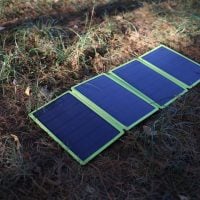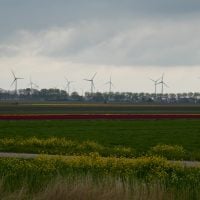Deadline: 27-Mar-23
The UK Research and Innovation (UKRI) has launched the Environmental Science Public Engagement Growing Roots programme funded by Natural Environment Research Council (NERC) to explore, and trial approaches for engaging the public with environmental science.
Purpose
The ‘exploring public engagement with environmental science 2023’ funding opportunity aims to support environmental scientists at a variety of career stages to bridge the gap of their public engagement goals and is designed to:
- be flexible, practical, and easy to access for a broad range of people. This includes environmental science researchers at all stages of their careers, public engagement professionals, and individuals and groups outside of academia
- ensure partners outside of academia are treated equitably, and in ways that work for them
- provide opportunities for researchers with limited public engagement experience, including PhD students and early career researchers, to learn by doing public engagement with environmental science research
Objectives
- For your application to be within scope for this funding opportunity, you must have a clear purpose that meets at least 1 of the following objectives:
- trialling a novel approach: exploring or experimenting with public engagement approaches, before learning from or applying these to future research. Examples include:
- exploring opportunities in participatory approaches to environmental science research (for example, co-production) and ensuring people are renumerated for their expenses and time. This could involve a range of activities that precede a research project, including listening to community needs, building relationships and trust, finding mutually beneficial goals planning how to enable communities to participate in ways that work for them, and so on. Partnerships may then go on to apply for further research funding
- developing an approach to engage under-represented groups and communities with environmental science research
- tackling barriers to engagement with environmental science research, including ethics, interdisciplinary working, issues of equality, diversity, and inclusion, or leadership
- addressing a gap, either within an organisational context or more broadly
- bringing people together: bringing together individuals, groups, or organisations to either build on existing relationships or newly work together. This could be to collaborate, or to build knowledge, skills, and confidence in different ways, such as mentoring, coaching, training, and so on. Examples include:
- people within academia: bringing together groups doing a particular type of public engagement, such as citizen scientists, people from across disciplines, researchers with different levels of public engagement experience, researchers with public engagement professionals, and so on
- groups or individuals outside of academia: researchers with a local community or public groups, researchers connecting with artists and so on, gaining insight into current or potential partners, individuals, and organisations and how they might help shape environmental science research
- learning by doing: build knowledge, skills, and confidence by taking part in or leading a high-quality, purposeful public engagement activity with environmental science research, providing a space for failure, mistakes, and progress. For example, a researcher with limited experience could run a small public engagement with environmental science research project, whereby they have the opportunity to be the lead applicant, head up the project and oversee the whole process (planning, delivery, and evaluation). Training courses, events, and conferences are not in scope for this funding opportunity
- responding to new opportunities to engage the public with environmental science: creating public engagement with environmental science projects that directly respond to a change that was not available or apparent when any current research funding was awarded. For example, responding to a new local residence forum on an environmental science topic, policy change, a new scientific or policy report being published, a broad change in public opinion, public attention on a topic due to a TV program, social media, or another source and so on
- trialling a novel approach: exploring or experimenting with public engagement approaches, before learning from or applying these to future research. Examples include:
- Your application does not have to be a full engagement project, with planning, delivery, and evaluation where relevant.
- Funded projects could precede a more mature approach to public engagement, which can be requested as part of larger funding opportunities, including:
- NERC knowledge exchange fellowships
- NERC funding opportunities
- involvement of environmental science researchers in engagement activities lead by those outside of academia
- UKRI public engagement funding opportunities
Funding Information
- Projects may request between £3,000 and £10,000 from this funding opportunity.
- The projects must start no earlier than 29 May 2023 and finish no later than 26 February 2024.
Eligible Funding
Funding requests may include, for example:
- staff resources including administration, coordination, or contributions to salaries
- sub-contracting of services
- funding that would enable public or community partners to take part, including time and expenses for partners involved in the projects
- facilitation of meetings, training events, etc.
- resources for public engagement activities
- non-staff resources including the cost of materials, travel and subsistence, meetings, events, consumables, materials, equipment, and evaluation costs. Travel and subsistence costs should adhere to UKRI’s travel and subsistence policy
- the costs of additional childcare, beyond that required to meet the normal contracted requirements of the job, and that cover time directly related to the project. This may be requested as a directly incurred cost. However, childcare costs associated with normal working patterns may not be sought
Ineligible Funding
Funding will not be provided for:
- estates and in-direct costs, or any other directly allocated costs (costs of resources used by the project that are shared by other activities, for example finance, IT, general laboratory cost, etc.)
- fees or honoraria to people already in paid employment to deliver activities where such activities would reasonably be undertaken as part of their normal duties
- retrospective funding, including those projects with a start date before the closing date or before the funding decisions are announced
- infrastructure or building costs
- expenses incurred as a result of submitting the application
- academic courses such as master’s degrees or PhDs (associated studentships), and other tuition fees
Eligibility Criteria
- This funding opportunity welcomes applications (as the lead or co-applicant) from a variety of backgrounds, including the following groups:
- environmental science researchers, including early career researchers
- PhD students (written permission must be provided by their PhD supervisor, and where applicable, the relevant Centre for Doctoral Training or Doctoral Training Partnership. Care should also be taken that the proposed project does not negatively impact the PhD student’s planned training and workload)
- researchers across academic disciplines, or fields outside of academia
- public engagement specialists
- community organisations (including people living in a particular locality, or groups based on common identity, interest, or practice)
- public representatives, or public-facing groups (for example, learned societies, environment and diversity groups, charity members, community groups, local authorities, or commercial companies providing a public service)
- business, third sector, and government bodies
- All applications must include a researcher who is eligible for UKRI funding and working within NERC remit as a lead or co-applicant. An eligible researcher would be employed or have a formal agreement to carry out research at an eligible UK research organisation and be at lecturer level or equivalent.
- For example, an eligible application would be a public engagement coordinator from a charity or an early career researcher applying for this grant as the lead applicant. The co-applicant would be an environmental science researcher from an eligible research organisation.
- The lead applicant must be eligible to apply for this funding opportunity on behalf of an organisation that would hold the award. It is the applicant’s responsibility to ensure that they have approval from their organisation to receive funding, with a signature required from the organisation’s nominated representative on the application form.
- Applicants may be involved in no more than 2 proposals submitted to this funding opportunity, and only 1 as the lead applicant.
- They particularly encourage applications from researchers and practitioners from a diverse range of backgrounds and experiences.
Requirements
The other requirements for this funding opportunity are:
- the environmental science research topic must be within NERC remit.
- this funding opportunity is engaging the public with environmental science research. Broader public engagement activities that focus on generalised science or just environmental science in general will not be funded.
- if there are public engagement activities within your project, they must include engagement that uses a 2-way process that involves interaction, listening, and the aim of generating mutual benefit. Science communication will not be funded.
- public engagement planned as part of this funding opportunity must include high-quality plans with a clear purpose, and identified audience, outcomes, and impacts.
- applicants planning to involve those outside of academia in the delivery of the projects (for example, co-design approaches) must consider their approach in building equitable, ethical partnerships and managing risks in line with best practice. Please ensure that you are appropriately compensating any individuals or organisations that collaborate on your grant
- engagement must focus on the UK public. If international engagement is a by-product of the core engagement this is acceptable. However, a project where all or most of the engagement was international is not suitable for funding.
For more information, visit UKRI.









































